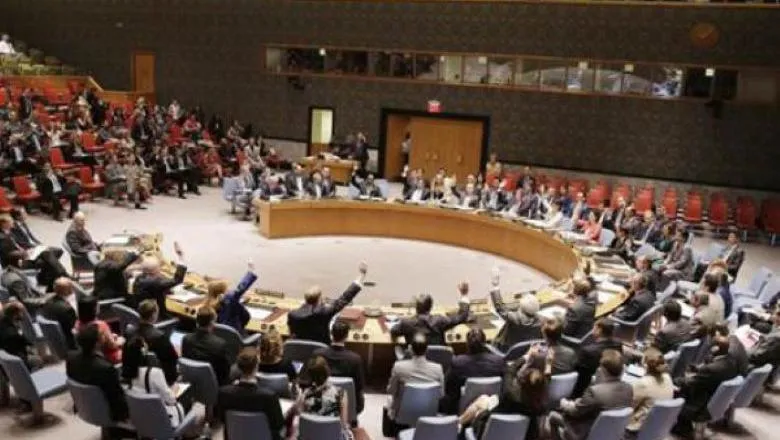16 December 2016
UNSC adopts resolution 2325 (2016) after comprehensive review of UNSCR1540 (2004)
The UN Security Council on 15 December unanimously approved resolution 2325 (2016), updating resolution 1540 (2004) as a result of a thorough review process – known as the 2016 Comprehensive Review of the Status of Implementation of resolution 1540 (2004) – by member states.

Resolution 1540 imposes binding obligations on member states to adopt legislation to prevent the proliferation of WMDs and establish appropriate domestic controls to prevent their illicit trafficking. As part of its review process, the 1540 group of experts Committee [the Committee] was tasked with assessing implementation of the resolution based on information which included the 1540 approved matrices, as well as inputs from member states and other relevant information provided by intergovernmental and regional and sub-regional organisations. On 9 December, the Committee submitted to the Security Council a report on the conclusions of its review. It found that “while overall progress has been made with the implementation of resolution 1540, there remains more to be done to accomplish the objective of full implementation of the resolution, which is a long-term task that requires continuous efforts at national, regional and international levels.”
Resolution 2325 (2016) urges governments to make greater efforts to comply with the implementation requirements of resolution 1540, and contains a new series of recommendations regarding the work of the Committee, which, it said, had substantially expanded its outreach since its establishment. However, noting a decreasing capacity of the Committee to respond to member states’ requests for assistance, it called on governments to, whenever possible, participate in voluntary contributions and high-quality assistance for capacity-building that would meet national needs for comprehensive implementation of the 1540 regime, including through greater cooperation among all stakeholders, civil society and academia.
While the resolution is helpful in reiterating the requirements of UNSCR1540, it does not contain much that is new other than highlighting a need to redouble efforts towards full implementation and to ensure that the resolution’s requirements are kept up to date with the evolving technological landscape. It is understood that more ambitious proposals had been discussed including, on the one hand, a dedicated provision of capacity building capability and, on the other hand, the creation of a chemical and biological terrorism convention at Russia’s request. However, it seems that agreement could not be reached within the Security Council, which has been politically charged in recent years as a result of re-emerging tensions between Russia and the US/ Europe.
An official statement on the adoption of resolution 2325 (2016) is available here.
